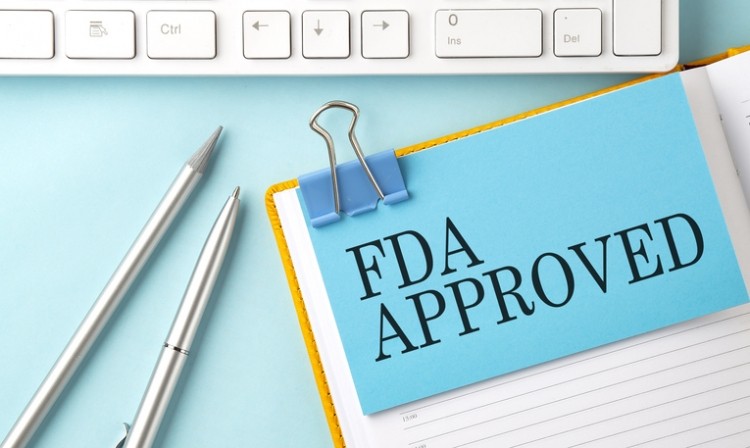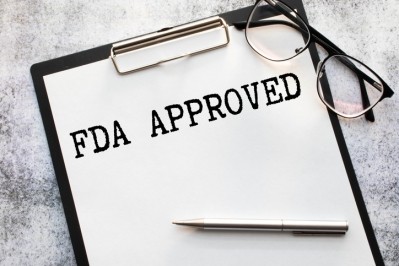FDA hears from industry on why changes are needed in US feed regulation

The agency is also aware of advances in scientific understanding and ongoing research to better understand how products added to animal feed can impact the microbiome of the gastrointestinal tract and could potentially enhance animal health, productivity, and the environment, said Steven Solomon, director of the US FDA’s Center for Veterinary Medicine (CVM).
He was speaking at the FDA CVM’s virtual public listening session on Tuesday linked to its regulation of feed additives with certain types of claims such as those pertaining to environmental benefit, growth promotion and feed efficiency, and animal health.
The FDA is reviewing CVM Policy and Procedures Manual (PPM) 1240.3605, Regulating Animal Foods with Drug Claims, and is seeking public comments on how the existing policy could be updated to reflect evolving scientific knowledge and promote innovation.
At the heart of the issue is whether an ingredient or product when used in animal feed is regulated as food or a drug, when that product makes certain claims about affecting the structure or function of the animal's body.
“This has been a topic of great interest across various stakeholder sectors, and I think that is demonstrated by the large number of folks that have registered for today's meeting, which include veterinary pharmaceutical manufacturers, feed manufacturers, distributors, veterinarians, animal producers, academia, food safety and advocacy groups, congressional staff, a number of federal and state agencies and many others.
“As animal food and veterinary medical sciences advances, we're working to address practical challenges presented by our regulations. Our regulatory decisions should be based on the best science available, while ensuring the safety of the products our animals are consuming and the foods that we are eating ourselves.
“We recognize the significance of any potential changes to the existing policy. We put together a dedicated group of experts from across CVM, who have been evaluating existing policy guidance and other documents related to regulating certain claims for animal foods and exploring ways in which our historic approach could change while still ensuring the safety and efficacy of products making those claims,” explained Solomon.
The listening session was set up to allow stakeholders to provide information on any challenges that result from current US feed additive regulation, with the CVM asking participants to also suggest ways in which policy could be amended.
Stakeholder input
David Fairfield, senior vice president with the Washington-based National Grain and Feed Association (NGFA), spoke at the event.
FDA's current view, he said, is that animal food with intended use claims related to reducing greenhouse gas (GHG) emissions or improving growth promotion or feed efficiency or effects on the animal microbiome all fall within the category of production claims, and therefore, such substances should be regulated as an animal drug.
However, in contrast, he said the NGFA believes the agency has latitude to define products that have production or health benefits as animal food rather than animal drugs.
“The federal statutory definitions for food and drugs provide the FDA with significant regulatory flexibility.”
Feed nutritional technology has continued to evolve, said the NGFA spokesperson. “Products currently exist that are safe and that have scientifically demonstrated production, health, and environmental benefits. NGFA believes providing a more efficient regulatory framework to bring these products to market with such claims will benefit the wellbeing of animals, farmers and ranchers, consumers, and the public at large.”
FDA's characterization of these products as ‘animal food’ would allow new technologies and innovation to reach the market sooner, resulting in increased efficiencies within US animal agriculture along with environmental benefits, he argued.
The agency's current policy that characterizes these products as animal drugs tends to stifle investment in research and development of such innovative ingredients.
“By modifying its current policy to allow such products to be regulated as animal foods, the FDA would also be aligning its regulatory framework with other developed countries," he added.
The FDA has published the agenda for the meeting and the list of other presenters.
FDA told to use existing ingredient review pathways
Louise Calderwood, director of regulatory affairs, the American Feed Industry Association (AFIA), presented the trade group’s perspective on the legislative framework as it stands.
Echoing much of what Fairfield outlined in his presentation, she said the AFIA is urging the CVM to address legistative restrictions by modernizing its guide to keep pace with scientific advances in animal nutrition, paving the way for animal food ingredients with production, animal safety, food safety and environmental claims to be regulated as foods, not as animal drugs.
US secretary of agriculture, Tom Vilsack, has spoken numerous times about the role feed ingredients can play in reducing GHG emissions and has urged the FDA to modernize its approach, noted Calderwood. “Even Congress in its fiscal 2022 appropriations bill directed the CVM to study this old policy on animal food claims and make this change.”
The AFIA is not asking the FDA to create a new regulatory pathway, she stressed. It believes the CVM can update its policy to support industry innovation in safe feed ingredients “that address current and emerging issues in animal food production" using existing ingredient review pathways.
There is no need to amend he Federal Food Drug and Cosmetic Act or FDA regulations, she added.
Caution urged
Dr Rachel Cumberbatch, director, international and regulatory affairs, the Animal Health Institute (AHI), a trade body representing the interest of companies that develop and produce animal medicines, also participated in the session. She urged the FDA CVM to proceed with caution in terms of any amendments to the existing US legal framework around animal food claims.
Claims in relation to curing, mitigating, treating, or preventing disease or claims indicating a product alters the structure or the function of the animal's body in a manner or extent that exceeds its nutritional value are not permitted on animal feed labels, and AHI supports maintaining this paradigm, said Cumberbatch.
She pointed out how the US animal health industry is very heavily regulated, with it required to meet a very high standard, including providing substantial evidence of effectiveness and meeting criteria for safety and quality. “AHI does not see a need to lower these standards and strongly encourages FDA to promote the integrity of the FDA approval process.”








